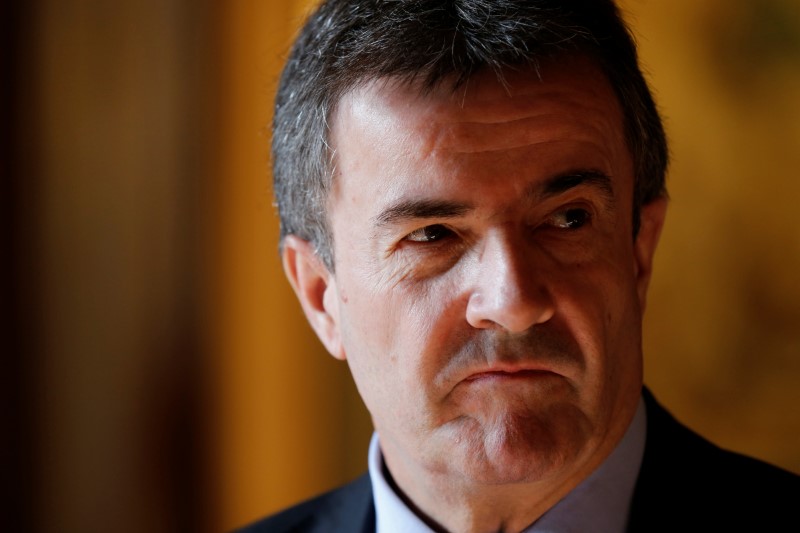By Julien Ponthus and John O'Donnell
PARIS/FRANKFURT (Reuters) - One of France's top bankers has accused low-cost rivals of piggybacking on a system built by big banks, saying they should shoulder more of the expense.
The remarks from Philippe Brassac, who is chief executive of Credit Agricole (PA:CAGR), one of the country's largest lenders, underscores the worries about rivals from supermarkets to fintechs competing for customers with cheaper services.
"I think it is time for the authorities to realise that they cannot allow players, who offer services but where they do not pay for the infrastructure, to get settled in," said Brassac, who also chairs the influential French Banking Federation.
"I find it extremely destructive for the system to accept ... that players could sell very cheap banking cards and in the end shoulder no infrastructure cost."
His remarks, which relate to the cost of payment systems and distributing cash, also highlight widespread concerns about the fintech sector, which uses payment apps on mobile phones or the internet rather than the bank counter.
The sector, which started with simple payment systems, has grown with the use of smart phones to either pay for a taxi or manage wealth.
Brassac's comments come as Fintech groups turn their attention to France and mobile phone group Orange prepares to launch Orange Bank in the country in July.
A spokesman for Orange said its bank had a full banking license and its own infrastructure.
Brassac's criticism earned a rebuke from many involved in fintech.
"It's nonsense for incumbent banks to moan about new players using infrastructure that was built decades ago," said George Bevis, chief executive of TIDE, which offers current accounts on the internet to businesses.
"Passing electrons between banks is not something that banks can claim is difficult or for which they should be charging the expensive prices they do."
Many fintech groups are less heavily regulated than large banks, who have dominated finance for decades and faced even stricter rules and costly capital demands after a financial crash triggered a global economic slowdown.
Lawrence Wintermeyer, who heads Innovate Finance, a fintech trade body in the United Kingdom, said that while payment services were "broadly unregulated", others areas of fintech were.
He predicted further cooperation with established banks.
The sector already employs more than 60,000 people in Britain, providing services like contactless payments, banking apps and online crowd funding.

"Low cost airlines didn't put the national carriers out of business but did force them to become more agile, helping more people to travel," said Wintermeyer. "The same applies to fintechs."